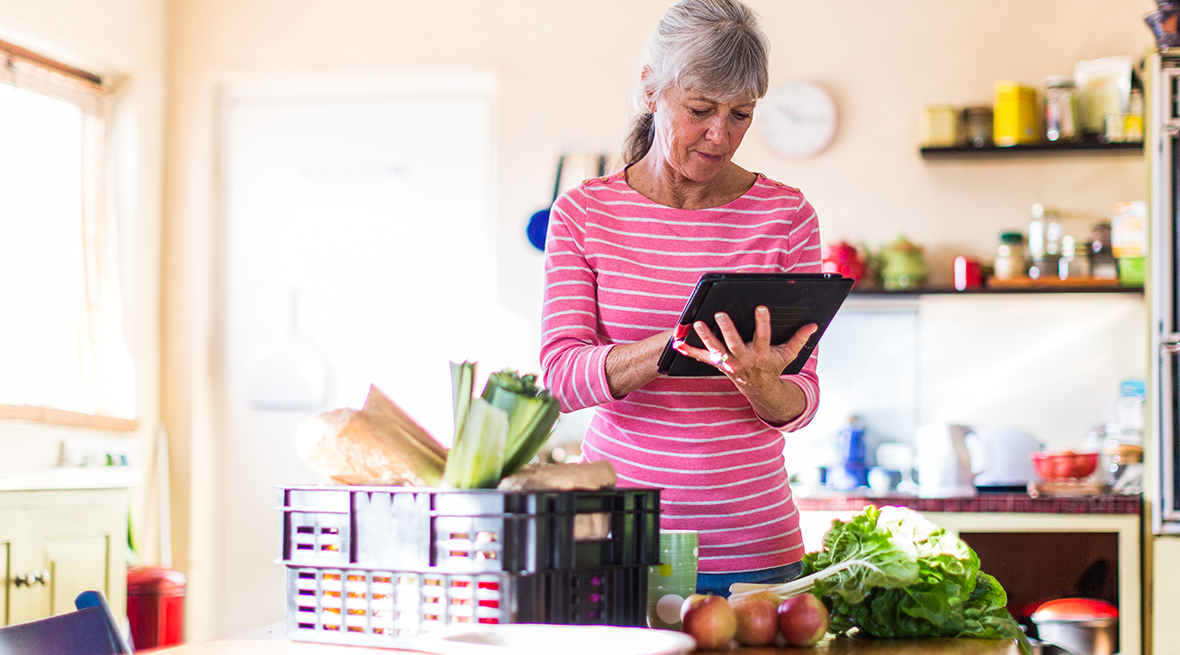AARP Hearing Center

In the face of the coronavirus pandemic, AARP California is providing information and resources to help older Californians and those caring for them protect themselves from the virus and help prevent it from spreading to others.
Governor Gavin Newsom has ordered all state residents to stay home except for essential needs like food, medicine, healthcare and getting to jobs that considered critical.
If you have coronavirus symptoms, call your health care provider or local public health department to figure out if you could — and should — get tested. Signs of the virus are a dry cough, fever and shortness of breath. (Read more about coronavirus and how to stay safe.)
Eighteen public health labs in the state are administering COVID-19 tests, and results are available within 48 to 72 hours.
Up-to-date state and local health information:
- The California Department of Public Health offers daily updates on those infected, plus tips for prevention, public resources and contact information.
- Twitter accounts for CA Public Health and the Office of the Governor of California provide updates in real time.
- Local alerts can be found on the department of public health website for your county or city.
- For medical, food and recovery services and information, call your local 211.
Food assistance resources:
- If financial difficulty is a barrier to food, find your closest food bank and other food assistance programs in your area.
- CalFresh: Applying to California’s food stamp program takes about 10 minutes. If you qualify, an EBT (electronic benefits transfer) card arrives within 30 days.
- Meals on Wheels: Obtain delivery of balanced meals for a nominal cost if you’re in Southern California. Meals on Wheels also operates in various locations throughout the state, providing free and low-cost meals to many Californians.
- L.A. County Workforce Development, Aging & Community Services: The department is distributing packaged or frozen meals for free at community and senior centers and at parks throughout the county.
- Project Angel Food: The nonprofit prepares and delivers meals to those with serious illnesses in Southern California, though you must apply and be accepted.
- SoCal Food Delivery: Southern California food delivery services Everytable and Toast Tab are waiving delivery fees on a subscription box or one-time order of $25 or more when customers use the code ETDELIVERY.
- Sacramento Food Bank: Sacramento Food Bank’s Food For Seniors Program is helping older adults gain access to food.
- Elk Grove Food Bank: The Elk Grove Food Bank Service operates one emergency feeding program, seven senior mobile distribution programs, and a home delivery program for the medically fragile housebound to help meet unmet needs among the most vulnerable populations. Visit, elkgrovefoodbank.org.
- Second Harvest: Non-profit Second Harvest of Silicon Valley offers a toll-free hotline that helps people in need of food find resources in their neighborhood. Individuals can call 800-984-3663 or text GETFOOD to 408-455-5181 to request assistance.
- Health Trust: Residents in Santa Clara County who are in quarantine or isolation, as well as older adults and persons with disabilities or health conditions, can call the The Health Trust at 408-961-9870 or email the Meals on Wheels program at MOW@healthtrust.org.
- Self-Help for the Elderly: In San Francisco, Self-Help for the Elderly delivers nutritious meals to older adults. Visit selfhelpelderly.org or call (415) 677-7600.
Grocery stores to know about:
- Safeway: Albertsons chains, including Safeway, are open Tuesdays and Thursdays from 7 to 9 a.m. for older adults and other at-risk shoppers, including pregnant women and people with compromised immune systems.
- Whole Foods: Shoppers age 60 and up can shop at stores for one hour before they open to the general public. Store hours vary by location. If a store is scheduled to open at 9 a.m., older shoppers can go from 8 to 9 a.m.
- Gelson’s: Special hours just for shoppers who are 65 and older: 7 to 8 a.m. daily. An ID may be required.
- Mother’s Market: Stores will open at 6 a.m. on Wednesdays to accommodate older and immunocompromised shoppers.
- Northgate Market: Only seniors 65 and older and disabled customers may shop from 7 to 8 a.m. daily.
Health assistance resources:
- Medi-Cal: Find your county department of health office and ask if it provides any COVID-19-related health assistance.
- Area Agency on Aging: California has 33 local aging resource centers that provide a wide range of assistance services.
- Caregiver Resource Centers: Eleven offices around California provide resources to caregivers.
Unemployment benefits and driver's licenses:
- If your employer reduced your hours or shut down due to the virus, you can file for unemployment insurance online, by phone, fax, or mail. If you expect to eventually return to work you don't have to be actively seeking work during the outbreak. But you must be “able and available for work” to get these benefits, which range from $40 to $450 per week for up to six months.
- Drivers are being asked not to visit the DMV unless absolutely necessary. Law enforcement will not enforce driver's licenses and vehicle registrations expired up to 60 days from March 16. Driver's license renewal and some other DMV services can be completed online.
More on Coronavirus































































